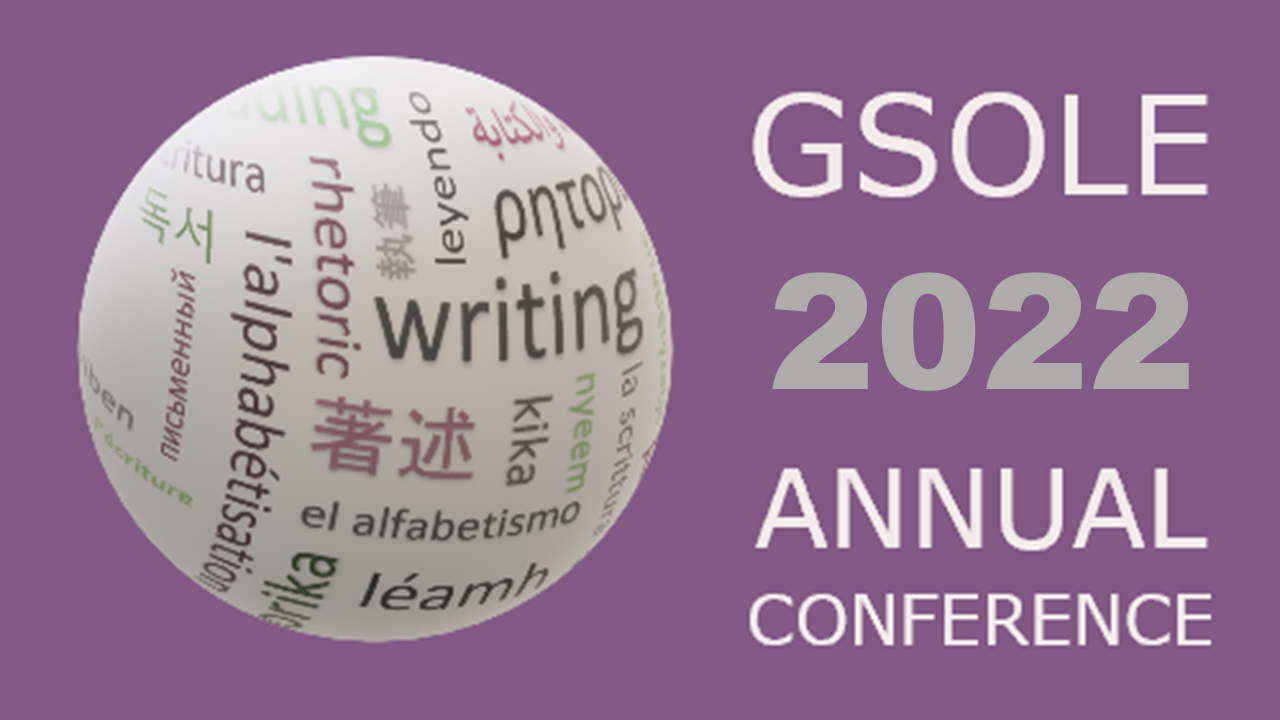- Home
- Programs
- Conference Program Archives
- 2022 Program
- GSOLE 2022 Conference: Call for Proposals
Visions and Sites of Online Literacy EducationGlobal Society of Online Literacy Educators Fifth Annual Conference
Friday, January 28, 2022 PRAXIS POST(ER) GUIDE | PARTICIPATION GUIDE |
Important DatesProposal Submission Due Date: October 12, 2021 Acceptance Notifications Sent: November 22, 2021 Asynchronous Activities Begin: January 18, 2022 Synchronous Sessions Meet All-Day: January 28, 2022 |
|
Call for ProposalsThe Global Society of Online Literacy Educators (GSOLE) invites proposals for its fifth annual online international conference to be held on Friday, January 28, 2022. |
Literacy is the core of teaching and learningNo matter the delivery method -- online, hybrid, flex, or face-to-face -- high quality teaching starts with strong content and informed pedagogy. Our conference seeks to highlight the many approaches to literacy education that are developed within local contexts and/or across disciplines, helping us identify approaches to literacy that advance more sustainable, equitable, and effective environments for supporting each other and our students. Online literacy education must be accessible and inclusive for all stakeholdersTo serve students, online literacy instruction must be overtly anti-racist, including practices that respect and reinforce the cultural and communal values of linguistic and social diversity. To serve faculty in K-12 and higher education, accessible and inclusive professional development and leadership opportunities must be promoted. GSOLE fosters discussions across cultures, environments, and disciplinesThis conference aims to support research about race, identity, accessibility, and inclusivity in online writing and literacy instruction. We especially encourage presentations that help teachers, tutors, and administrators better understand how to incorporate overt instruction about antiracism and social justice into online writing and literacy curricula and programming. GSOLE welcomes proposals from anyone with interest and experience in online teaching and learning.Whether you are a student (undergraduate or graduate), contingent faculty, nontenure-track faculty, tenure-line faculty, or staff member, we welcome your contributions to these important discussions. Conference presenters and participants represent a wide variety of educational contexts (e.g., K-12 schools, two-year colleges, four-year colleges, graduate and professional programs, and tutoring and writing centers). All presenters will be required to confirm GSOLE membership as part of accepting an invitation to present. See below for opportunities for financial support. |
Topics of InterestFor other topics of interest to GSOLE members, please browse our website.
|
Guiding Questions |
- How has Covid-19 impacted the ways in which we develop community, cultivate teacher presence, etc., online?
- How has Covid-19 helped (or hindered) efforts to address misconceptions about online instruction?
- What have anti-racist pedagogies and teaching for linguistic justice in our online courses looked like?
- What professional development opportunities should exist and be promoted that are accessible and inclusive to all online literacy educators?
Presentation FormatsWe invite proposals for presentations taking one of the forms described below.
|
Submission GuidelinesProposals should be prepared for anonymous review, and therefore the authors' names and institutional affiliations should not appear within the presentation abstract. Where applicable, use anonymous descriptors to discuss institutional contexts and presenters (e.g., “large two-year college”; “English department at state university”; “WPA”; “adjunct faculty member”; etc.). Peer review will commence promptly after the submission deadline, and notifications will follow in November. NOTE: Please submit no more than two proposals total. If submitting two proposals, they should be of different presentation formats. The proposal form asks prospective presenters for the following information:The proposal form will be linked at the top of the page.
|
Presenter Support
|

